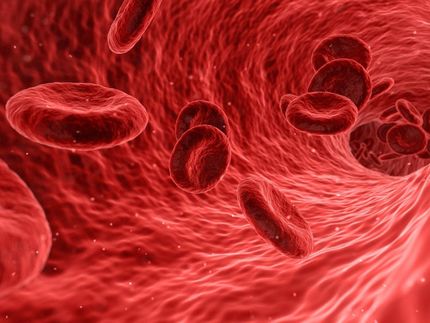MorphoSys Strengthens Patent Position on MOR202 Program
MorphoSys AG announced that the US Patent and Trademark Office (USPTO) has granted a patent covering the Company's cancer compound MOR202. The new patent (US 8,088,896) covers MorphoSys's HuCAL antibody against CD38 as well as pharmaceutical compositions comprising the same, and has a scheduled expiry date in 2028, not including any potential regulatory extensions.
"In 2011, MOR202 became our third proprietary antibody program in clinical trials, following MOR103 in rheumatoid arthritis and multiple sclerosis and MOR208 in chronic lymphocytic leukemia," commented Dr. Marlies Sproll, Chief Scientific Officer of MorphoSys AG. "Strengthening our intellectual property position on our proprietary products, particularly in our most important markets Europe, the USA and Asia, is of high priority for MorphoSys."
MOR202 is a fully human HuCAL antibody directed against CD38, a therapeutic target for the treatment of multiple myeloma and certain forms of leukemia. The HuCAL-derived, fully human antibody is currently being tested in a phase 1/2a trial in patients with relapsed/refractory myeloma.
Most read news
Topics
Organizations
Other news from the department research and development

Get the life science industry in your inbox
By submitting this form you agree that LUMITOS AG will send you the newsletter(s) selected above by email. Your data will not be passed on to third parties. Your data will be stored and processed in accordance with our data protection regulations. LUMITOS may contact you by email for the purpose of advertising or market and opinion surveys. You can revoke your consent at any time without giving reasons to LUMITOS AG, Ernst-Augustin-Str. 2, 12489 Berlin, Germany or by e-mail at revoke@lumitos.com with effect for the future. In addition, each email contains a link to unsubscribe from the corresponding newsletter.
Most read news
More news from our other portals
See the theme worlds for related content
Topic world Antibodies
Antibodies are specialized molecules of our immune system that can specifically recognize and neutralize pathogens or foreign substances. Antibody research in biotech and pharma has recognized this natural defense potential and is working intensively to make it therapeutically useful. From monoclonal antibodies used against cancer or autoimmune diseases to antibody-drug conjugates that specifically transport drugs to disease cells - the possibilities are enormous

Topic world Antibodies
Antibodies are specialized molecules of our immune system that can specifically recognize and neutralize pathogens or foreign substances. Antibody research in biotech and pharma has recognized this natural defense potential and is working intensively to make it therapeutically useful. From monoclonal antibodies used against cancer or autoimmune diseases to antibody-drug conjugates that specifically transport drugs to disease cells - the possibilities are enormous





















































